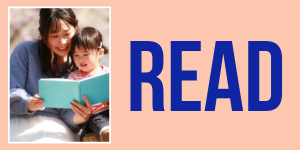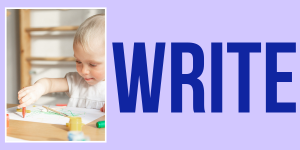
Children start learning from day one! Visits to the library are a fun way to develop these skills:

Print motivation - Being interested in and enjoying books

Print awareness - Understanding that print has meaning; noticing print everywhere, not just in books

Vocabulary - Knowing the names of things

Letter knowledge - Knowing that letters look different from each other; knowing letter names and sounds

Phonological sensitivity - Being able to hear and play with the smaller sounds that make up words

Narrative skills - Being able to describe things and events, and tell stories

Early literacy skills begins with the primary adults in your child's life! Try these five simple practices to support your child's reading life:

Reading together, or shared reading, remains the single most effective way to help children become proficient readers.

Singing, which also includes rhyming, increases children's awareness of and sensitivity to the sounds in words. This helps children to decode print (written language).

Talking helps children learn oral language, one of the most critical early literacy skills. The experience of self-expression also stimulates brain development, which underlies all learning.

Play is one of the primary ways that children learn about the world. General knowledge is an important literacy skill that helps children understand books and stories once they begin to read.

Writing and reading go together. Writing helps children learn that letters and words stand for sounds and that print has meaning.
